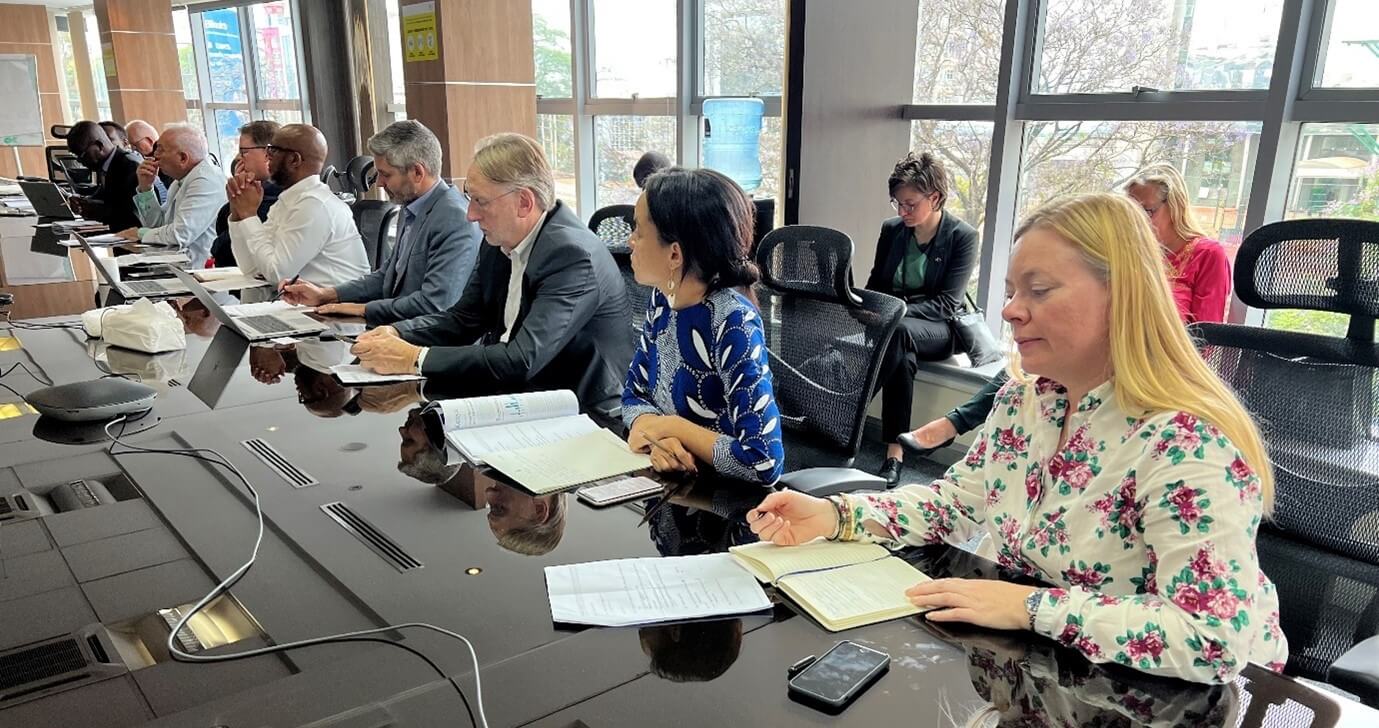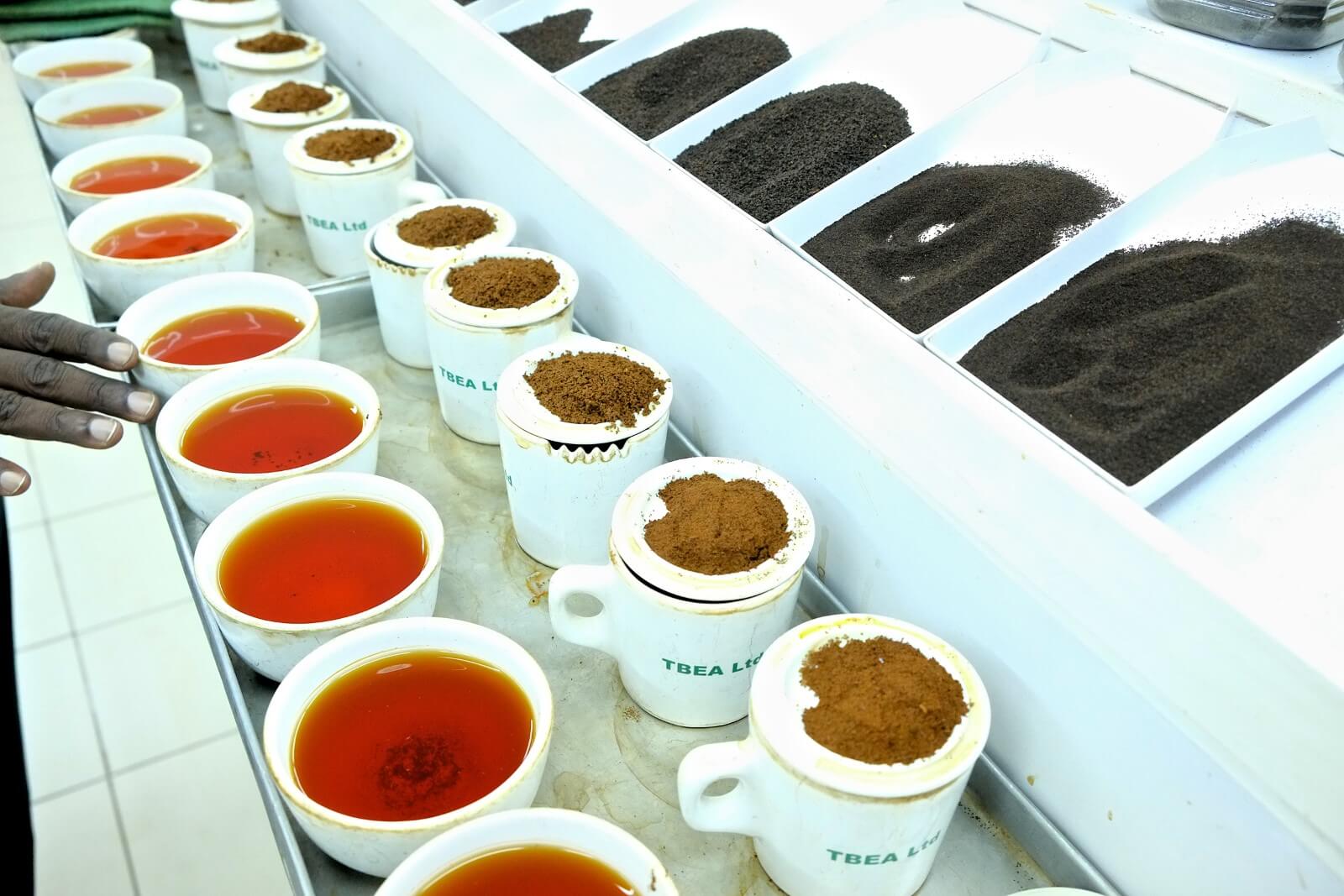Ministers Francis Mwebesa and Wilson Mbadi (left and second from left) with TMA Uganda Country Director Anna Nambooze and Bagonza (second from right and right) The Ministry of Trade, Industry, and Cooperatives, Uganda, and TradeMark Africa convened 190 participants drawn from government, the private sector, civil society, and international organizations on 26 and 27 March, 2025, to discuss and evaluate the current state of trade in Uganda. The Uganda Trade Review Conference 2025, themed Leveraging Trade: Towards Uganda’s 10-Fold Growth Strategy, focused on identifying challenges and opportunities in the trade sector. The conference aimed to develop actionable strategies to enhance Uganda’s trade performance, foster economic growth, and promote sustainable development by empowering local businesses to access global markets. Participants highlighted export growth and diversification beyond traditional commodities like coffee, tea, and tobacco, now including manufactured goods, processed foods, and minerals. This diversification has increased the need for industrial parks and Special Economic Zones (SEZs) to expand production capacity. Additionally, increased trade agreements within the East African Community (EAC), COMESA, and the African Continental Free Trade Area (AfCFTA) have significantly boosted market access. Lynette Bagonza, the Permanent Secretary of the Ministry of Trade, Industry, and Cooperatives, emphasized the importance of shifting from raw exports to processed goods that fetch higher prices in international markets. “Our manufacturing program aims to increase manufactured exports from 15 percent in 2021 to 20 percent by 2029. We must ensure our goods meet global standards and are competitive,” she stated. Regarding infrastructure development, participants identified the...
Spotlight on Manufacturing, Digitization, and Trade Diplomacy for Growth as Annual Trade Conference Closes in Uganda
Posted on: April 1, 2025
Posted on: April 1, 2025




![How EU-Africa partnership is unlocking sustainable trade in Africa [Op-Ed]](https://www.trademarkafrica.com/wp-content/uploads/2022/06/eu.webp)













